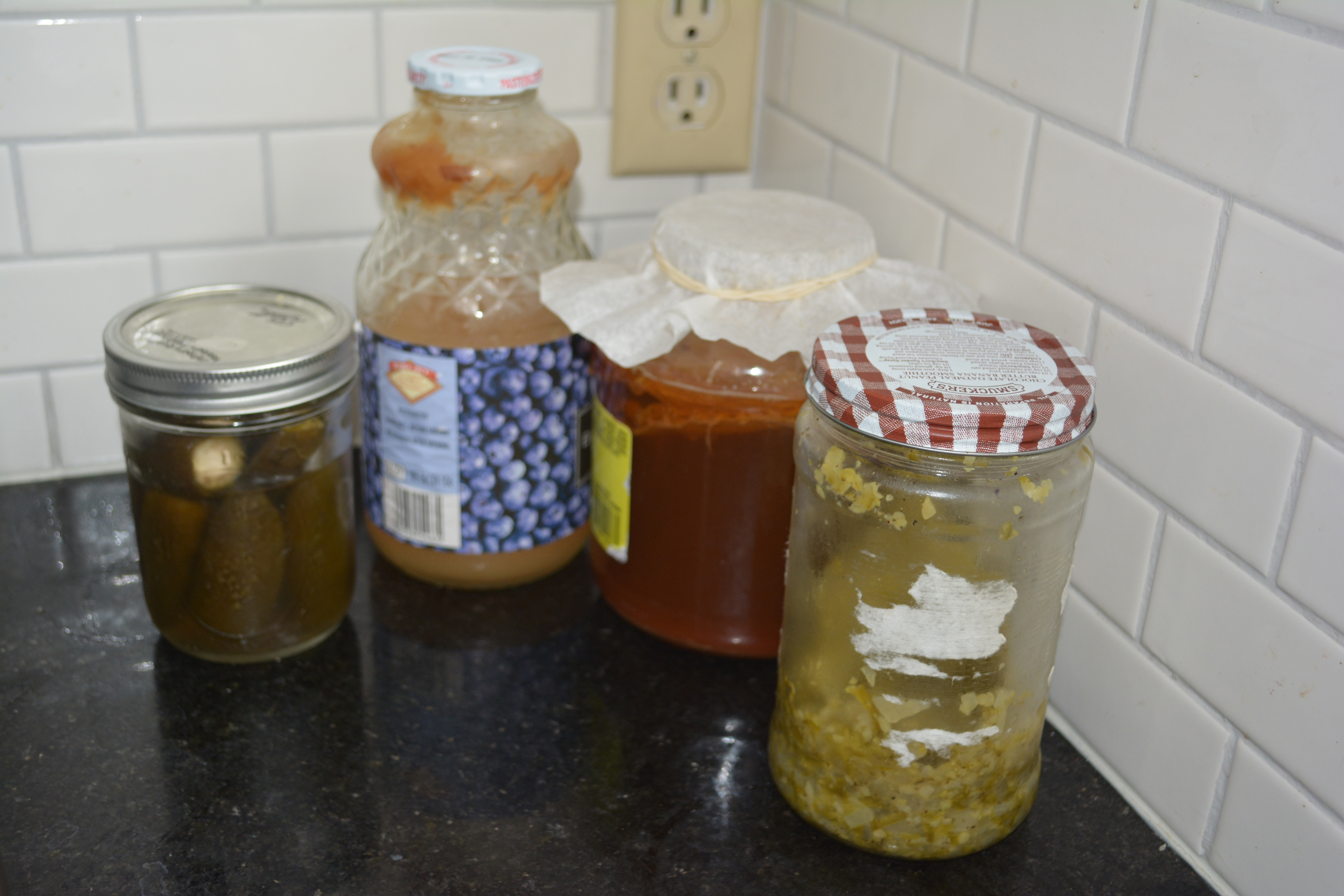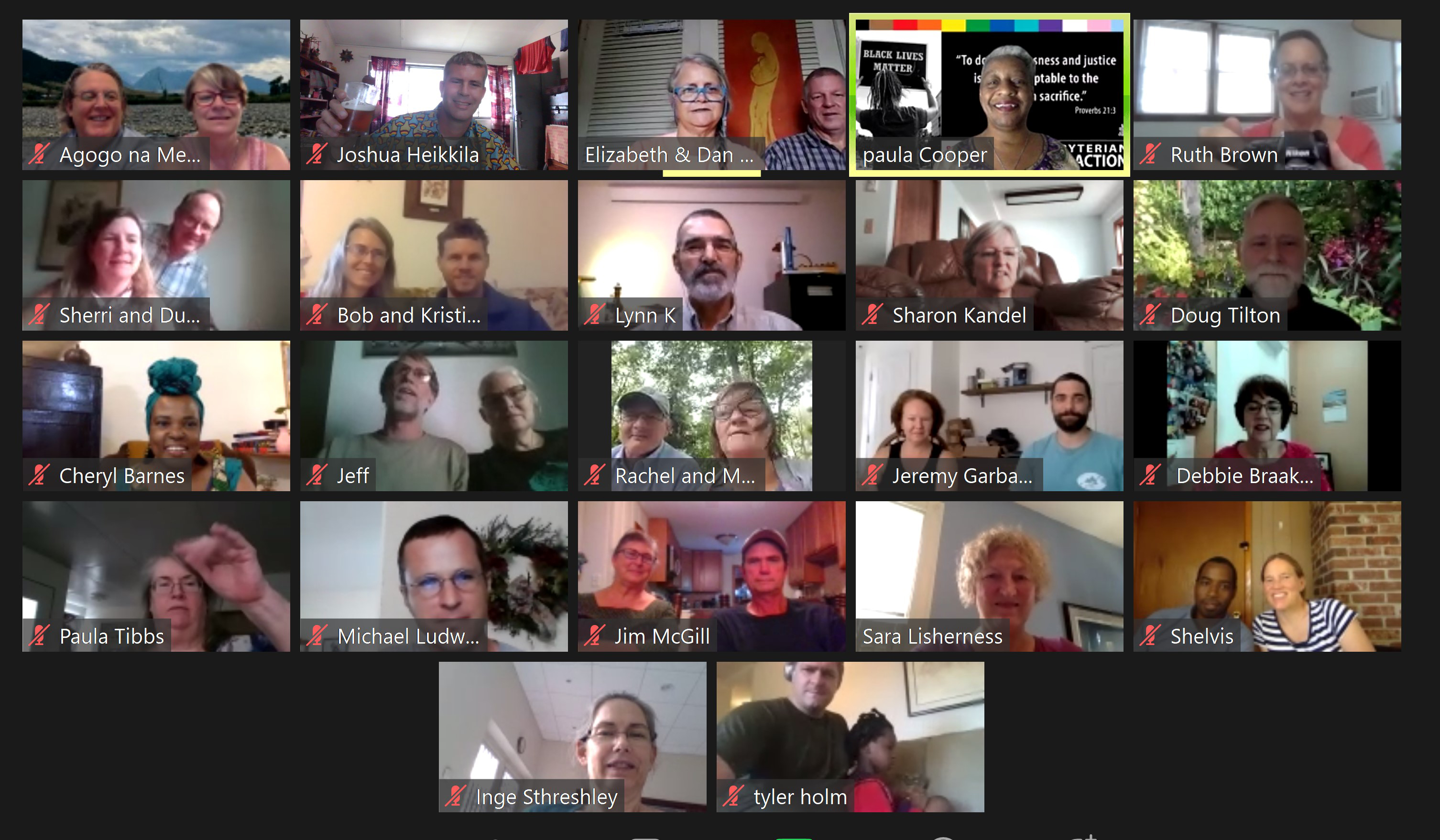A Letter from Jeremy and Luta Garbat-Welch, serving in Malawi
October 2020
Write: Jeremy Garbat-Welch
Write: Luta Garbat-Welch
Individuals: Give online to E200515 for Jeremy and Luta Garbat-Welch’s sending and support
Congregations: Give to D507577 for Jeremy and Luta Garbat-Welch’s sending and support
Churches are asked to send donations through your congregation’s normal receiving site (this is usually your presbytery)
Subscribe to our co-worker letters
Dear friends,
I (Jeremy) used to hear the word “fermented” and think of fruit that had been left out a bit too long. Then I discovered home fermenting, and the joy of making kombucha, sauerkraut, and other fermented foods and drinks on my own. “Fermentation” then meant to me the process of storing and aging foods and beverages to make them something tangy and healthy. I recently took an online fermenting course, which defined fermentation as “a process of change.” This sent me to the dictionary, which defines “ferment” as “a process of active often disorderly development,” or “to work up (as into a state of agitation).”
What better way to describe cross cultural living and work? What better way to describe the opportunities of our present moment?
In the PC(USA) we do mission in partnership. This means many things, particularly that we do not go in with our own agendas or projects but rather we are invited by our partners to join in the ministries they are prioritizing. It means that we enter with an attitude of humility and openness, recognizing that we learn even as we come to teach, that we change even as we come to share.
During my fermenting course we learned how to make wild fermented fruit soda. It is a simple process. All you need is a container, fruit, sugar, water, and something to stir it with. Put it all together into the container and stir vigorously a few times a day until the concoction is bubbly and fermented the way you want.
Due to budget shortfalls brought on by the current COVID-19 pandemic, a number of our Africa mission co-workers accepted a voluntary separation package, essentially retiring early. We celebrated them in a virtual sendoff, sharing stories of their impact upon each of us as they impacted the partners they worked with over the years. I reflected with them upon this wild fruit fermentation. When we travel cross-culturally to join in God’s mission work, we probably take with us an idea of how change will happen. Maybe we think we are the container in which the process of fermentation and change will happen. Perhaps we see ourselves as the water, or the fruit that brings the needed bacteria, or the sugar that feeds it. Maybe we are the one stirring the mix up, to help change happen. I’m sure that whatever part of the process we think we will be when we go, the reality turns out to be something else! Instead of being the one stirring things up, maybe we feel like we are being vigorously stirred ourselves! Hopefully we take turns with our partners being the various elements, so we can benefit from one another’s knowledge and strengths.Whatever our role in the “process of active often disorderly development,” we do not leave things unchanged. Our partners change, and we change, as a result of our lives together. I told the co-workers who were retiring: I know that you have caused change and been changed. And I hope that wherever you go next, whatever God has in store for you, you will continue to be an agent of fermentation.
Most days it does not feel to me like our current situation, both nationally in the USA and internationally, has any sense of “development” in it. “Disorderly change,” for certain! But development, the idea that we are going someplace that is an improvement? Not so much. Whether it is concerns about a virus we still do not understand, a failing economy, racism and violence which we can no longer pretend has been solved, or anxiety about upcoming elections, there is plenty out there stirring up the waters we live in. The changes feel more like disruptions, simply causing chaos, and not changes for the better.
I believe it falls on us to be agents of fermentation, to try and harness the change for the better. When Luta works with Community Health Evangelism (CHE), the goal is change and development. But the process often does not follow the orderly plan they lay out, and what turns out to be the assets and end products are often not what people had in mind or expected. That is OK though, because God doesn’t ask us to be in control, but to trust, and to obey, and to love. When I work with the Church of Central Africa Presbyterian (CCAP) chaplains, they face a lot of frustrations, and see a lot of pain in the people they serve. It can be exhausting to encounter pain and suffering on a daily basis, and the current situations only make things more stressful. But the stories of lives changed by an encounter with Christ’s love are true and tangible proof that the chaplains’ work does bear fruit.
Fermentation requires patience. It requires waiting. Even as I check on my ferments and perhaps stir here or burp there, there comes a point where I just have to wait and see what the result is before I start the next batch. The results are tasty, and sometimes unexpected, but worth the wait. Some of us right now find ourselves in a period of waiting, waiting to see what will happen as the virus progresses, waiting for a cure so life can “go back to normal,” waiting for the next chance to act or to vote. Some of us find ourselves in a much more clearly active fermentation, getting stirred up and bubbly, and maybe we are not very comfortable with the things we are learning or the environment around us. Maybe some of us are in both of those positions at the same time, with different aspects of our lives.
But wherever you find yourself, whatever God is calling you into, I hope you will use this time to be an agent of fermentation. To make changes, to hope for development into something new and better, even if the process is chaotic and disorderly along the way.
In Christ’s Service,
Jeremy (for the Garbat-Welch’s)
![]() You may freely reuse and distribute this article in its entirety for non-commercial purposes in any medium. Please include author attribution, photography credits, and a link to the original article. This work is licensed under a Creative Commons Attribution-NonCommercial-NoDeratives 4.0 International License.
You may freely reuse and distribute this article in its entirety for non-commercial purposes in any medium. Please include author attribution, photography credits, and a link to the original article. This work is licensed under a Creative Commons Attribution-NonCommercial-NoDeratives 4.0 International License.

